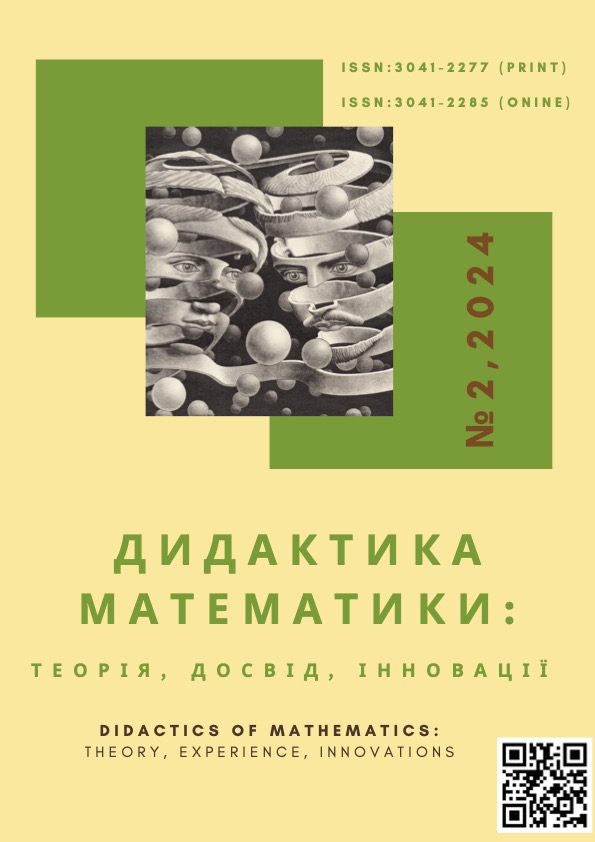Project activity in the system of professional training of future teachers of mathematics
https://doi.org/10.31652/3041-2277-2024-2-109-119Published 2024-12-26
Keywords
- Inclusion of theoretical knowledge in the practical process,
- elementary mathematics,
- future teachers of mathematics,
- project activities of students
Copyright (c) 2024 Світлана Яценко, Дар’я Сергійко

This work is licensed under a Creative Commons Attribution 4.0 International License.
How to Cite
Abstract
In extremely difficult conditions, domestic teachers need to focus even more attention on preparing students for independent life. The formation of a student's personality is more important than ever, not in the aspect of accumulating knowledge, but in the ability to see a problem, in the formation of a critical approach to information processing, the choice of what is important and the ability to see goals, set tasks, look for solutions, correct by analyzing one's mistakes, and analyze the results obtained etc. As practice shows, the modern teacher still lacks the knowledge to organize such activities of students. Therefore, improving the quality of teacher training is possible by ensuring a competency-based approach, which involves combining theoretical knowledge with their practical skills. In our opinion, it is the involvement of students in project activities (creation of their own projects) in the system of their professional education that will create the conditions for solving this problem. Scientists offer a place for theoretical aspects of students' training in project activities. However, the question of including the project activities of students of mathematical specialties in the system of their professional training remains unresolved. In particular, there are no studies of this problem when teaching students in the "Elementary Mathematics" course. This article demonstrates the expediency and possibilities of including future teachers of mathematics in the project activity during the study of the educational discipline "Elementary Mathematics" as a means of forming life competencies of the individual. As a result of such inclusion: students' cognitive activity is intensified; their creative abilities develop; economic and financial literacy of students as active members of society is formed; there is an active inclusion of theoretical knowledge in the practical process; the ability to work in a team is formed.
Downloads
References
- Бондаренко А. К. Проєкт як форма самостійної роботи студентів при вивченні соціальних дисциплін. Наукове мислення. http://surl.li/ptvotf
- Коберник О. М. (2012). Проектна технологія: теорія, історія, практика: монографія. Умань: ПП Жовтий О.О., 229 с. http://surl.li/gnflgt
- Коростіянець Т., Тумбрукакі А. (2020). Залучення майбутніх учителів математики до проектної діяльності при вивченні фахових дисциплін, «Актуальні питання гуманітарних наук: міжвузівський збірник наукових праць молодих вчених Дрогобицького державного педагогічного університету імені Івана Франка», №33, т.1. С.368-373 http://www.aphn-journal.in.ua/archive/33_2020/part_1/57.pdf
- Питт, Дж. (2004). Что это такое и как мы это делаем: [Метод проектов] [Текст]. Відкритий урок. №5/6. С.26-27
- Сисоєва С.О. (2006). Основи педагогічної творчості: підручник К.: Міленіум, 345 с. http://surl.li/pbldyu

